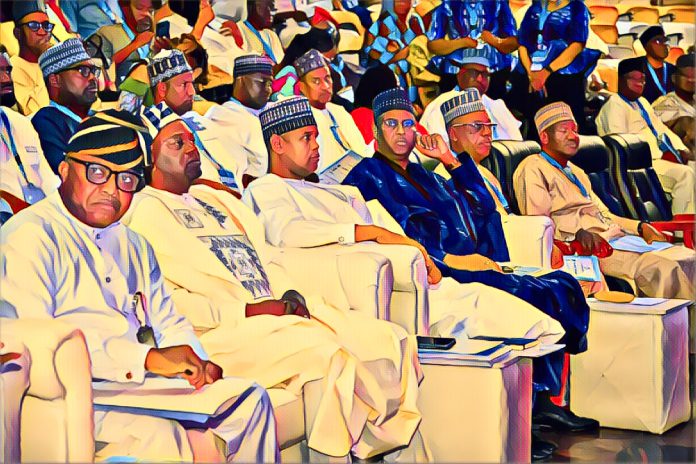In a significant discourse on the nexus between water governance and food security, Sada Soli, the Chairman of the House Committee on Water Resources, raised concerns at the 30th regular meeting of the National Council on Water Resources and Sanitation held in Abuja. Soli’s address underscored the critical role that effective water management plays in combating the prevalent food crisis in Nigeria, a nation grappling with the challenges of ensuring food security for its burgeoning population.
The crux of Soli’s argument centered on the inefficiencies plaguing water governance in the country, which he pinpointed as a primary factor undermining agricultural productivity. With agriculture being the backbone of Nigeria’s economy and the primary source of sustenance for its population, the call for adopting sustainable water management practices has never been more urgent. Soli advocated for a holistic approach that includes investing in climate resilience measures and ensuring inclusivity in decision-making processes to bolster agricultural output and, by extension, food security.
Echoing Soli’s sentiments, Joseph Utsev, the Minister of Water Resources and Sanitation, emphasized the necessity of a collaborative effort among the ministries of agriculture, water resources, sanitation, and sub-national entities. This collaboration aims to enhance irrigation systems across farmlands, ensuring perennial food production. Utsev highlighted the significance of irrigated agriculture as a cornerstone for Nigeria’s economic development, contributing significantly to the Gross Domestic Product (GDP) and serving as a vital intervention for national food security and poverty alleviation.
The minister took the opportunity to spotlight the achievements under the World Bank-sponsored Transforming Irrigation Management in Nigeria (TRIMING) project. This initiative has seen the completion and handover of several irrigation schemes, including the Hadejia Valley, Kano River, and Gari projects, spanning thousands of hectares across Jigawa and Kano states. These developments represent a leap forward in the government’s effort to modernize and expand irrigation infrastructure, which is pivotal for achieving sustainable food production.
Furthermore, with the TRIMING project nearing its conclusion, Utsev disclosed the formation of a committee dedicated to devising strategies for its sustainable continuation. This initiative underscores the government’s commitment to bolstering irrigation development as a key strategy for enhancing food production and securing the socio-economic well-being of the nation, aligning with the administration’s Renewed Hope Agenda.
Bello Goronyo, the Minister of State for Water Resources, underscored the fragility of the water infrastructure supporting the country’s food security. Goronyo called for immediate and decisive action to address the food crisis, highlighting the urgency of reinforcing the water governance framework to mitigate the risks facing agricultural productivity and food availability.
In solidarity with these viewpoints, the Minister of the Federal Capital Territory (FCT), Nyesome Wike, represented by Daniel Audu, General Manager of the FCT Water Board, acknowledged the indispensable role of effective water governance. Wike advocated for a concerted effort among stakeholders to foster the development of actionable recommendations aimed at enhancing water governance for national security.
The discussions and deliberations at the National Council on Water Resources and Sanitation meeting illuminated the intricate relationship between water management and food security. The consensus among government officials and experts underscores a collective resolve to prioritize water governance as a fundamental pillar for ensuring the nation’s agricultural resilience and food self-sufficiency.
As Nigeria navigates the complex challenges of climate change, population growth, and economic pressures, the imperative for innovative and sustainable water management strategies becomes increasingly evident. The concerted efforts of government ministries, coupled with the engagement of local and international partners, herald a promising trajectory towards securing the nation’s food future through enhanced water governance. This holistic approach, championed by key policymakers and stakeholders, signifies a beacon of hope for addressing the multifaceted dimensions of food security in Nigeria, paving the way for a prosperous and sustainable future.



